Are you crazy about hunting? Archery? Hot air balloons? Harry Potter? Do you restore vintage cars? Are you a master gardener? A jazz connoisseur? A wine snob? A history buff? What are you crazy about that others just don’t appreciate like you do?
Vet school is when most prospective veterinarians begin hearing about crazy dog breeders. You can’t have a conversation about canine reproductive services without the obligatory acknowledgement that the owners of these animals are not normal. That stereotype biases vet students in their formative stages and carries into their later careers. Still today veterinary colleagues will comment on my professional specialty, “I’m sure it’s fascinating work, but aren’t your clients just a bit…touched?”
Crazy is never good and better avoided and therefore many vets avoid even offering reproductive services thinking to weed out some of the more crazy clients. Who wants the headache? I mean, who needs the added drama and stress?
I’ve thought a lot about this stereotype, especially since my life path has led me to working almost exclusively with dog breeders. The unfortunate part of this misunderstanding is that responsible dog breeders are actually the best of clients. Stick with me and I will defend my opinion.
What do we mean when we say someone is “crazy”? It’s not literal. We don’t think they have a mental illness. I think that most of the time when we say someone is, or a group of people are, crazy, what we mean is that they are passionate about a subject we ourselves don’t care that much about. We don’t understand what the big deal is and why they are getting so excited. We don’t understand it, so they must be “crazy.”
But the truth is most of us, by this definition, are crazy. Crazy about something, anyway. I had a college roommate who got so caught up in evolutionary biology that we had to warn girls visiting us, “Don’t ask Max about his major! You’ll be sitting for an hour listening to him go on and on.” And…it was true. Max would get all excited and his volume would rise and his eyes would light up and he’d start spewing a diatribe about phylogenetic trees and monophyletic groups and cladistics and how flight has evolved three times in vertebrate history but only once in insects (which is actually a fun fact for a cocktail party), and…the girls would start out politely listening, but their eyes would increasingly glass over and, realizing that our prospects with these girls were quickly diminishing, finally one of us would say, “Max, none of us have any idea what you’re talking about.” And that would seem to bring Max back to Earth, and he’d laugh at himself, a bit embarrassed, but still feeling the high from his excitement, and certainly not having learned to reel it in next time.
When I was a university professor and lecturing to veterinary students on canine reproduction, I started by trying to dispel the stereotype that dog breeders are crazy. I told the students that I am a “birder,” someone who loves birdwatching. Most people think birders are “a bit crazy.” And by the definition I’ve given in this blog, we are. I tell the students a story about how I once tiptoed past a momma alligator with baby alligators all over her because I wanted to see a Least Bittern that was down the trail. And then there was the time I drove 6 hours round trip with two strangers and my infant son in the car to a sewage treatment plant in Florida because the three of us (not my son) wanted to see a Masked Duck which normally only lives in the Caribbean but had been blown off course in a storm (and we met people there who had flown in from California to that Florida sewer just to see that duck). Is there a better word than “crazy” to describe us? I have learned that if people ask what I like to do, I tell them I like birdwatching, but then I make myself stop there and do not talk more about it…because I have learned that most people just don’t care. They can’t care. At least not at the level I’m ready to take them to if I start going. They just can’t understand. No one can, except a fellow birder.
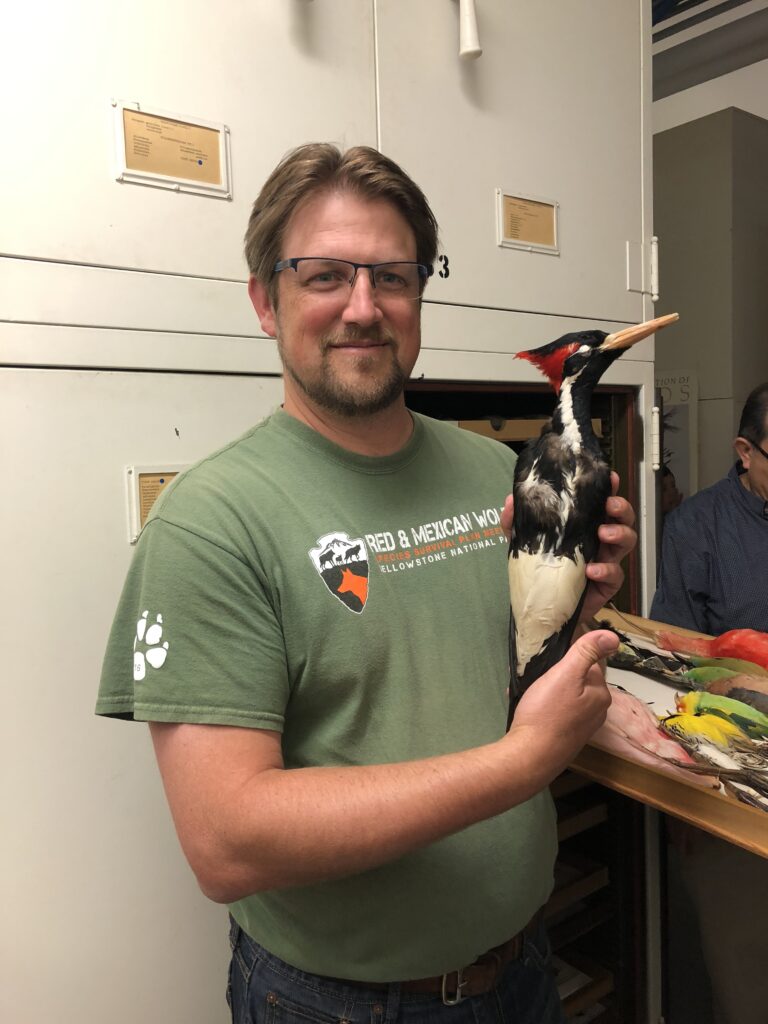
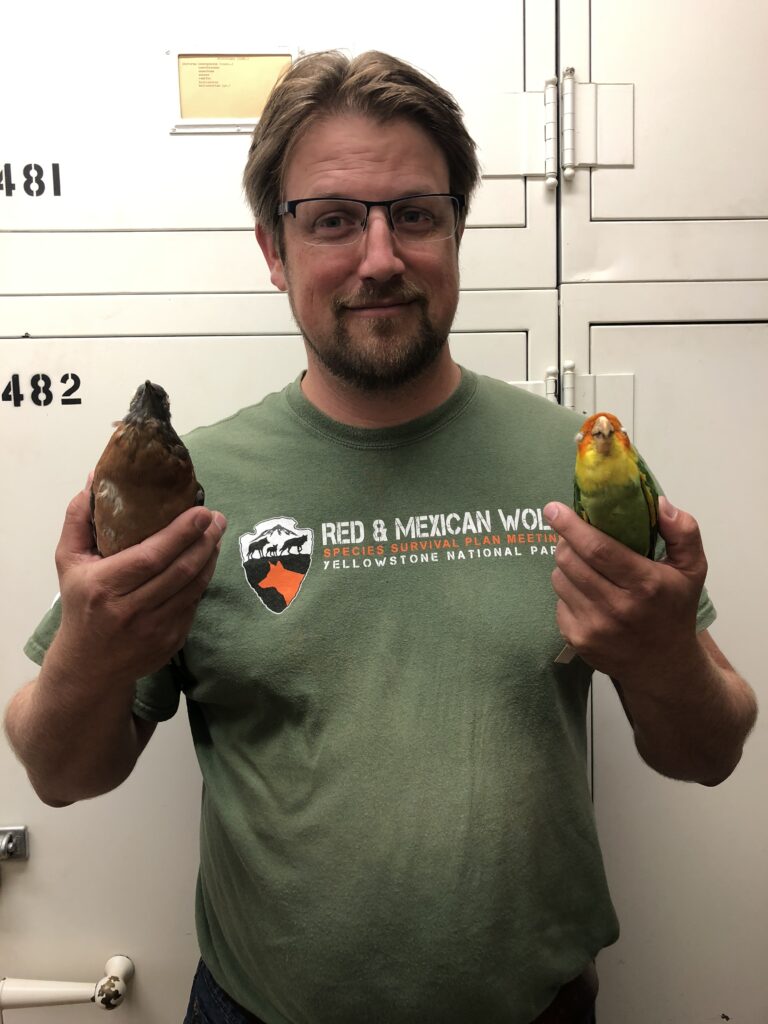
Dr. Christensen is a crazy birder.
Then I asked the students to think about themselves. Do they have a hobby or interest about which they are passionate? Most people have something. And, if they are honest, would their friends and family, who don’t share that interest, describe them as “a bit crazy” when it comes to that thing? I have a fly fishing uncle, a gnome-collecting mom, a board game-playing nephew, a sister who plans to visit all 63 National Parks, a brother-in-law into geocaching and metal detecting, a multi-marathon-running friend, a friend whose young son has turned an entire room in his home into Lego world, and a colleague who collects old cast iron cookware and hangs it in his garage, all of whom would be described by anyone outside their interest groups as “a bit crazy” when it comes to those things. Why do they feel a passion for things that most people don’t give two hoots about? Who knows?
Who even knows?
When they initially encountered the thing, something inside them sparked. I don’t know why I love watching birds but really don’t care to learn to fly fish. I can see why fly fishing would be a great hobby and would give me some of the same peace and calm and endorphin release, but for whatever reason…not interested. So, instead of fishing poles and reels and waders and feathers, I have binoculars and spotting scopes and tripods and bird identification apps on my phone. I have shirts and hats with birds on them. And when I plan a vacation I’m always thinking about what birds I can see there and I plan extra time on the trip dedicated to looking for those birds. My uncle will do the same for fly fishing. My sister will plan her next vacation to southern California, not for Disneyland, but to visit Death Valley, Joshua Tree, and the Channel Islands National Parks (18 down, 45 to go!). And my marathon-running friend, who has made a goal to run a marathon in all 50 states (he’s done 25 so far…halfway there!), will plan his vacation to Connecticut because that’s a state still on his list.
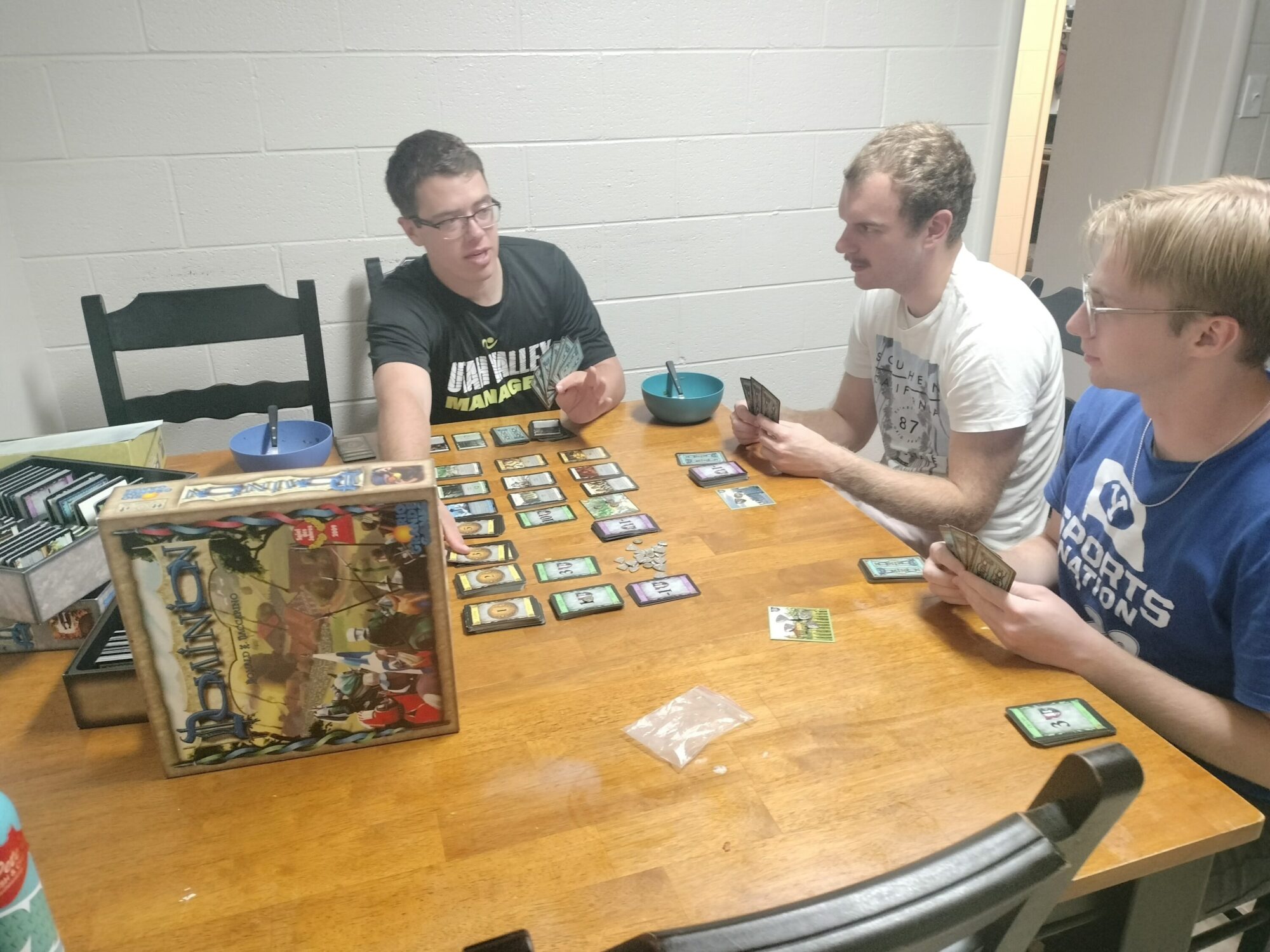
Dr. Christensen’s nephew, Taylor, is a crazy board-gamer.

Dr. Christensen’s sister, Pam, is crazy about National Parks.
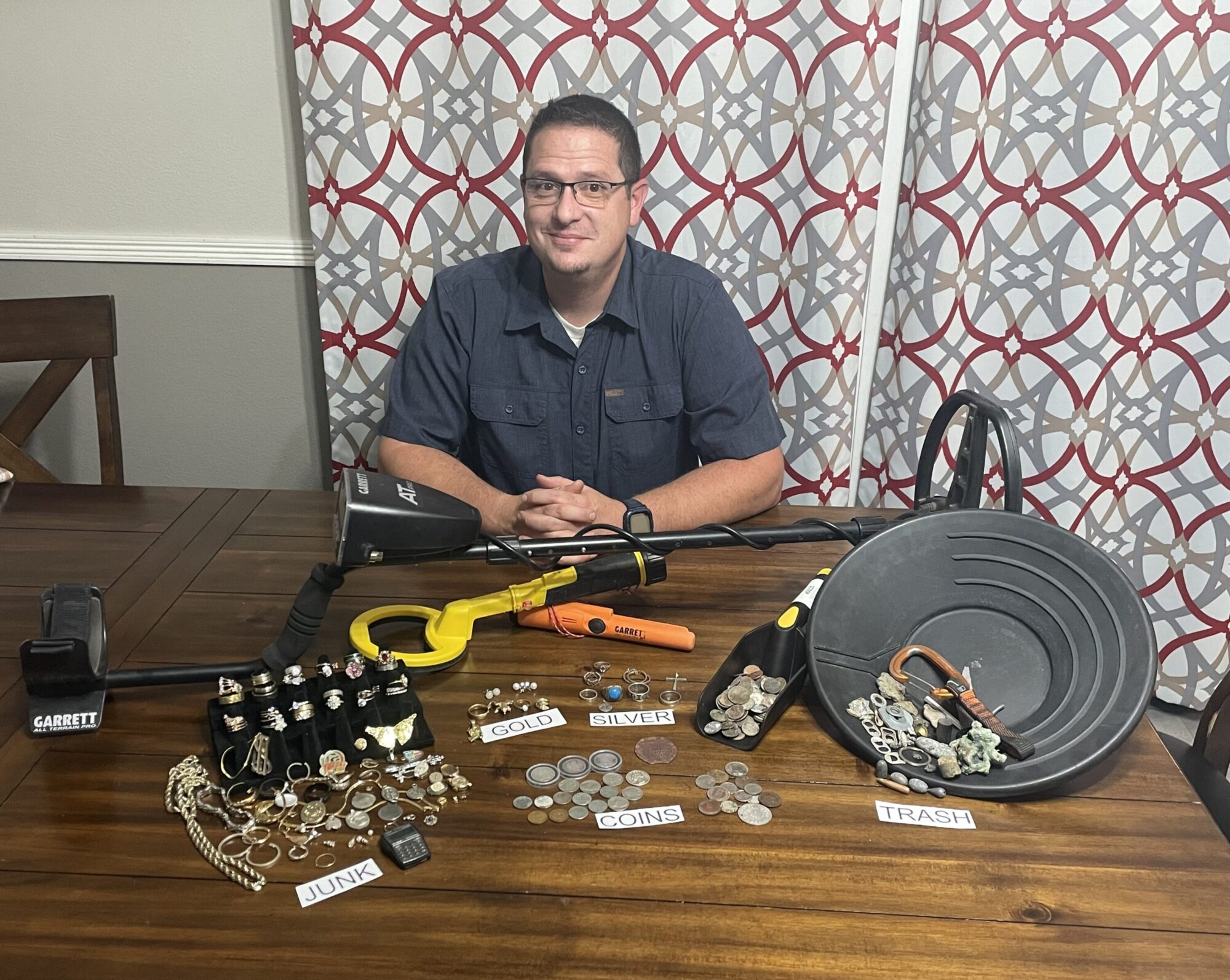
Dr. Christensen’s brother-in-law, Chuck, is crazy about metal detecting.

Justus is a crazy runner.
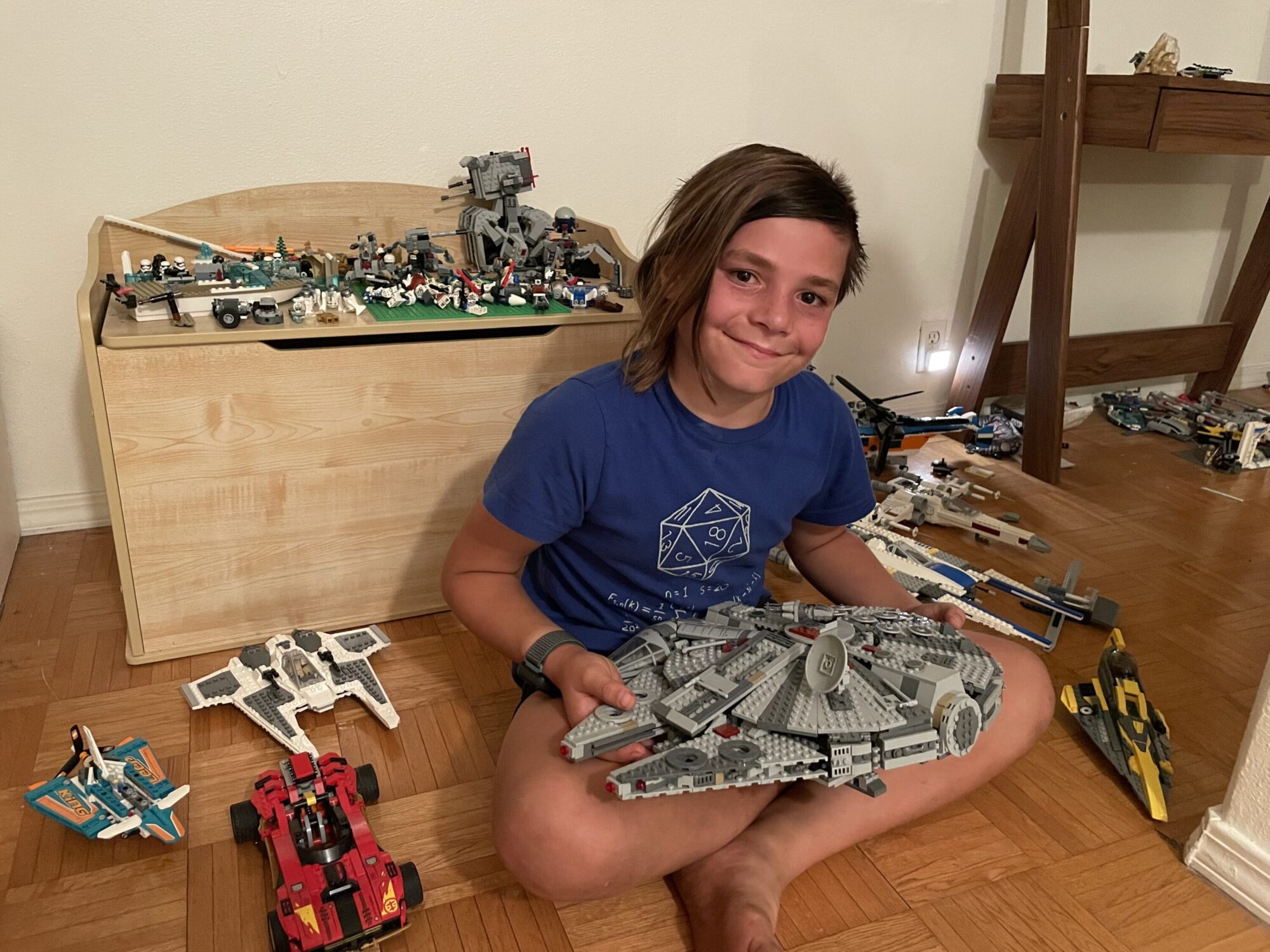

Callum is Lego crazy.
Well, dog breeders are the same. They are people who are “crazy passionate” about a certain dog breed.
One of the misconceptions about dog breeders is that they are in it for the money. Some people do breed dogs for money, true. These are the puppy mills, the newest-fashion-Frenchie breeder, and the latest what-breed-can-I mix-with-a-poodle-now breeder. This blog is not about them. For the breeders I’m talking about, the AKC show people, the sporting dog breeders, nothing could be farther from the truth. This is their hobby. Their all-encompassing hobby. They are no more into dog breeding for the money than my uncle is into fly fishing, even if he sells some of the flies he ties. It’s a hobby, not a vocation. For a dog breeder, all of their expendable income is spent on their dogs: clothing, bumper stickers and jewelry featuring the breed, durable crates, show leashes, fancy collars, drool rags, snoods, grooming supplies, Sprinter vans, RVs, portable fences, whelping boxes, puppy playgrounds, veterinarians, trainers, professional handlers, dog show entry fees, kennel club fees, and all the money to travel all over the country showing their dogs. The only money that they recoup is from selling puppies and that does not come even close to offsetting what they put into the dogs.
Here’s where I come to why responsible dog breeders are the best clients a vet can hope to have. Vets and good dog breeders share the common goal of canine health first and foremost. Good dog breeders never just want to produce a litter to sell it. Each litter is meticulously planned. The resulting puppies will reflect on the reputation of the breeder and contribute to the overall future and health of the beloved breed. Preliminary health testing is done including hundreds (or thousands) of dollars spent in breed-appropriate health testing of joints and hearts and eyes and endocrine function and breathing ability and genetic screening for diseases. The breeders additionally consider the temperament and conformational strengths and weaknesses of the bitch and then look for a stud dog that compliments the bitch’s strengths and offsets her weaknesses with the goal that the puppies will exemplify the best of both parents and not the weaknesses.
Dog breeders aren’t just passionate about their breed in a broad sense. They are absolutely dedicated to the individual health and happiness of each individual dog. This includes not only those dogs in their direct care, but any that have left their breeding program and are in forever homes elsewhere. The breeders serve as lifelong mentors and resources for the families who adopt their puppies. They are always there to take a puppy back if circumstances warrant it. They participate actively in their breed clubs, many of which fund research into canine health conditions. If one of their dogs needs something medically, they find a way to make it happen.
If we would just say what we mean, this blog topic would never have happened. If we only said, “Oh my goodness, dog breeders are so PASSIONATE about their dogs!” then vet students would gain a totally different, more realistic, truthful, and useful bias that would carry over to better training in school and later service to clients. Hopefully we will get there someday. In the meantime, I hope we can all self-evaluate and identify our own “crazy.” Do you have a room in your basement filled with a diorama of mountains and towns visited by a model train? Do you participate in Civil War reenactments? Renaissance festivals? Comi-Con? Are you a knitter? Quilter? Photographer? Sourdough connoisseur? Or are you, like my college roommate, Max, the youngest member on the board of the “Rocky Mountain Tool Collectors”? In so recognizing our own style of crazy, maybe we can be tolerant, even appreciative, of the crazy in everyone else.
Feel free to comment and tell me: what is your “crazy”?
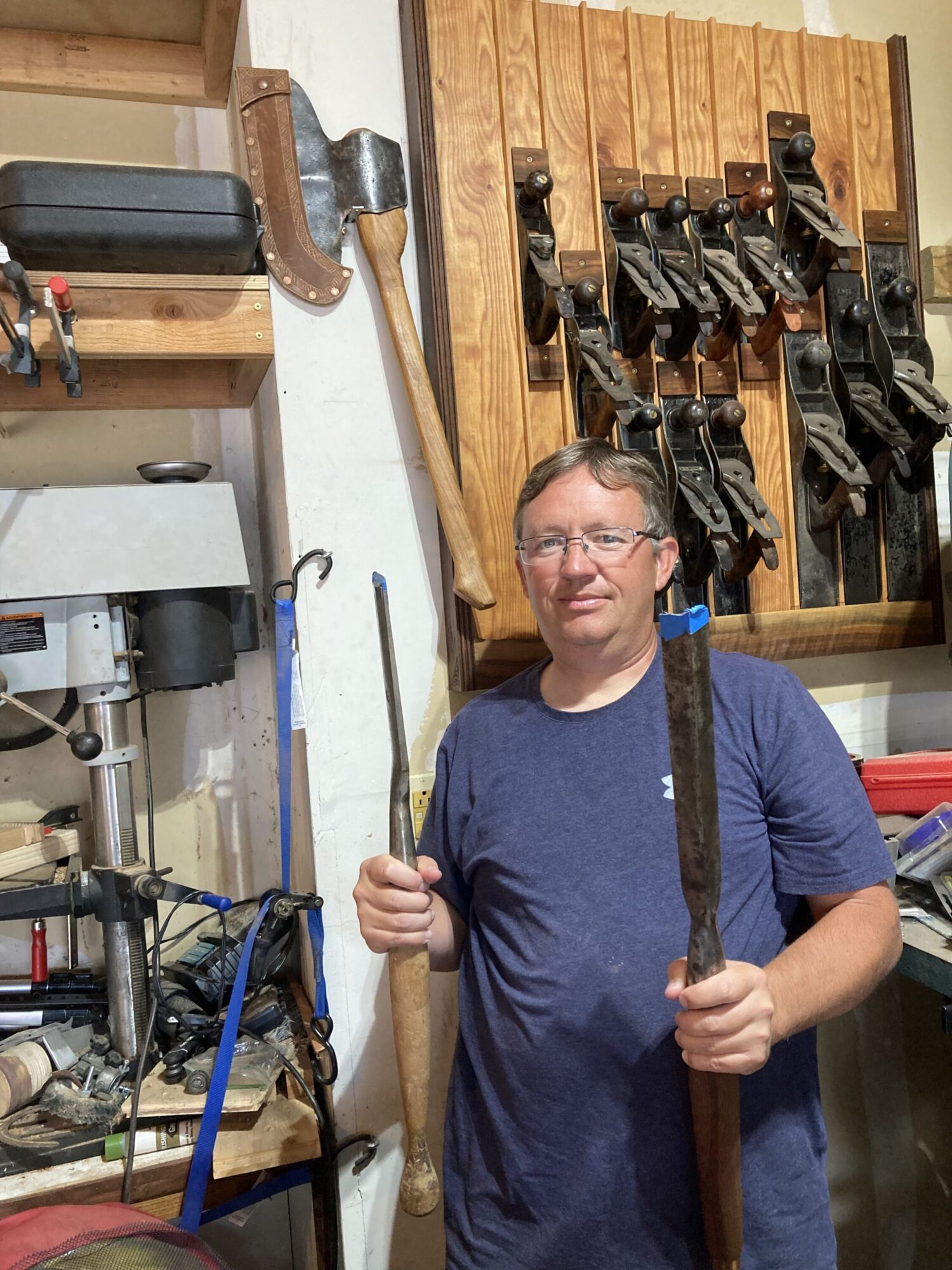
Dr. Christensen’s college roommate, Max, is crazy about antique tools.

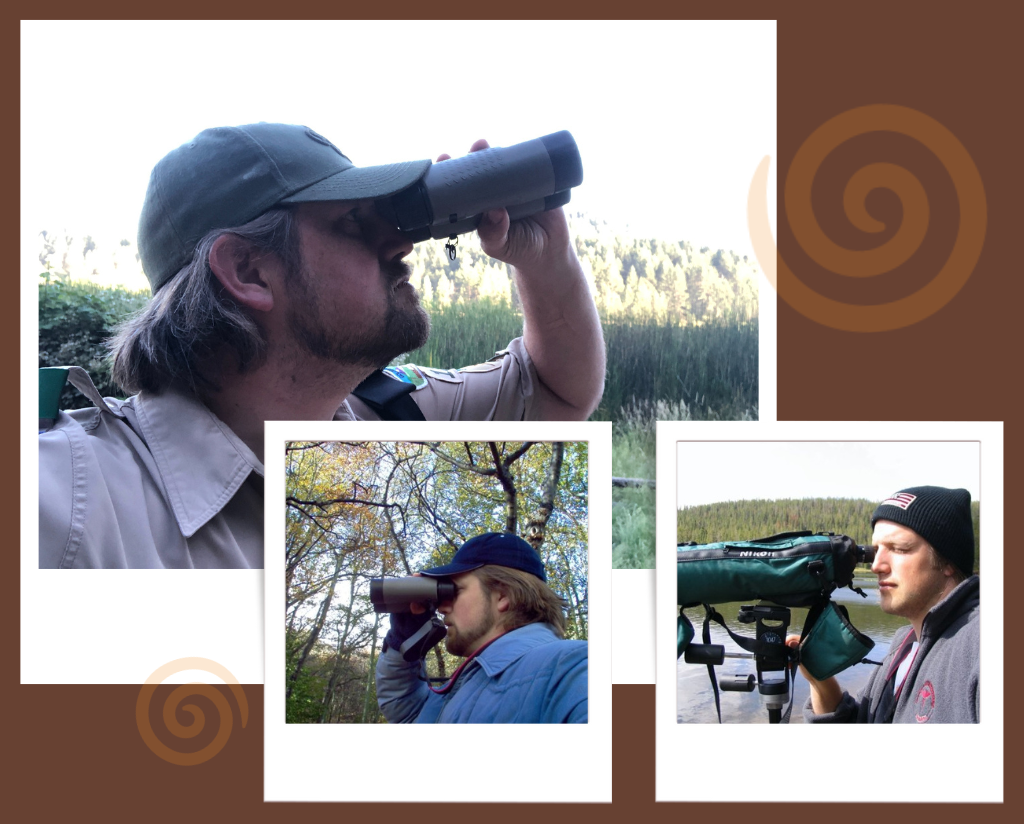
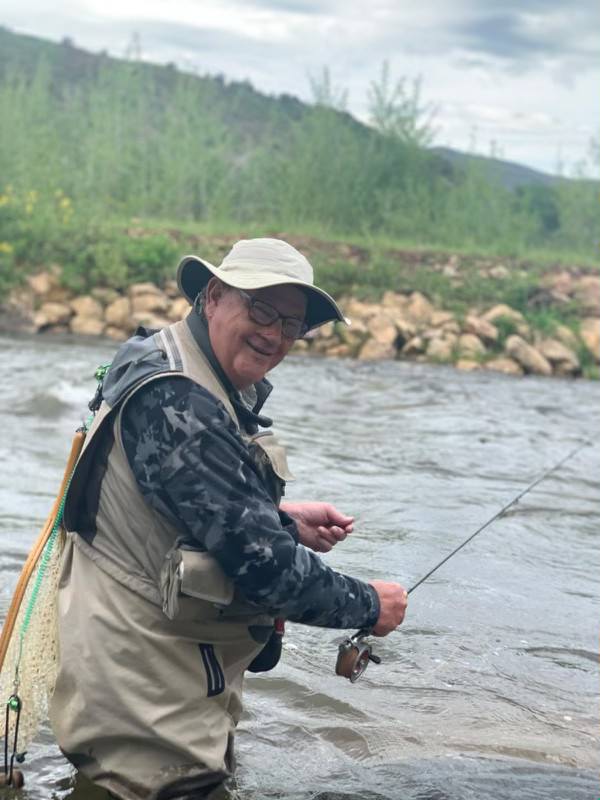
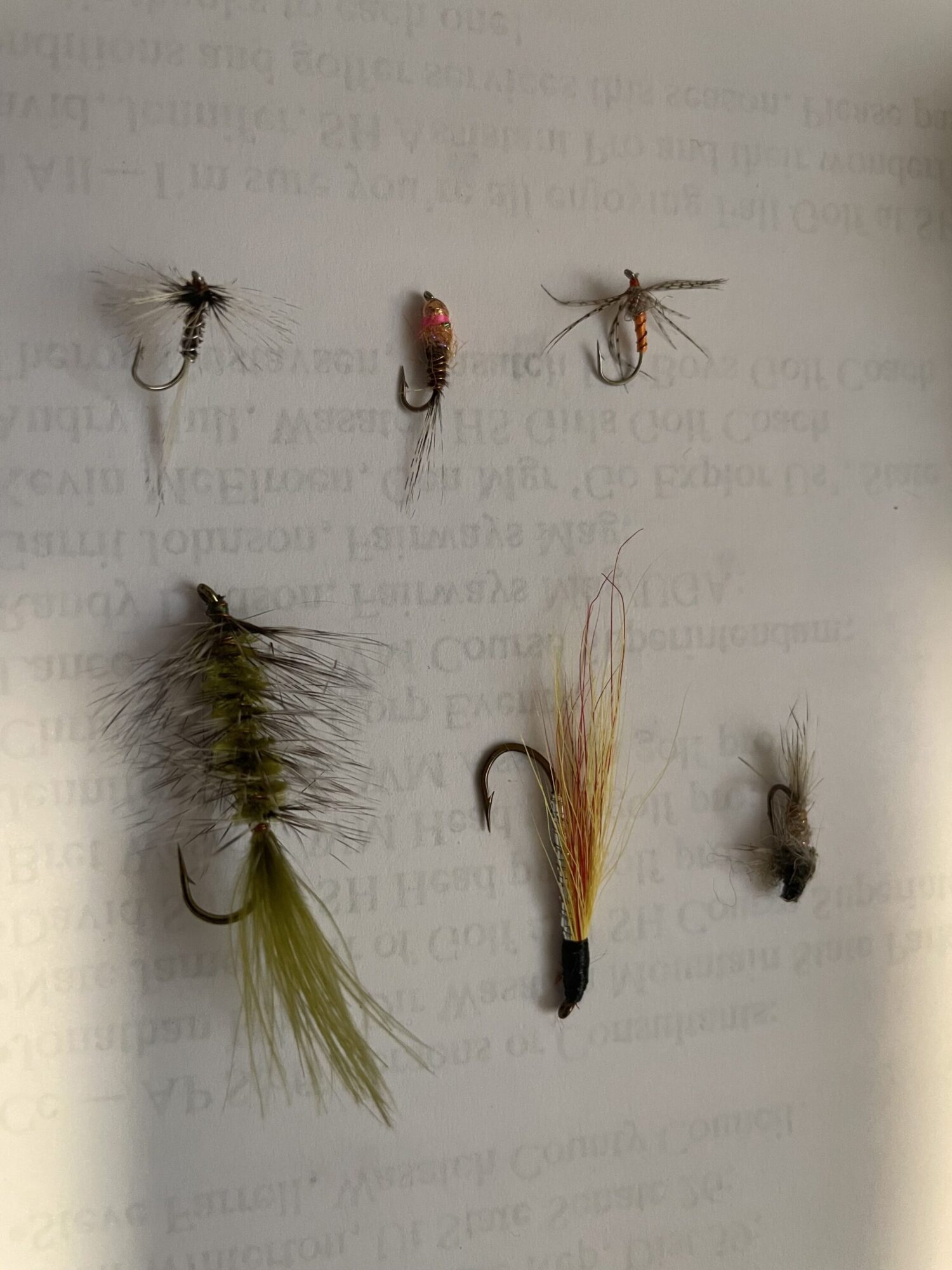
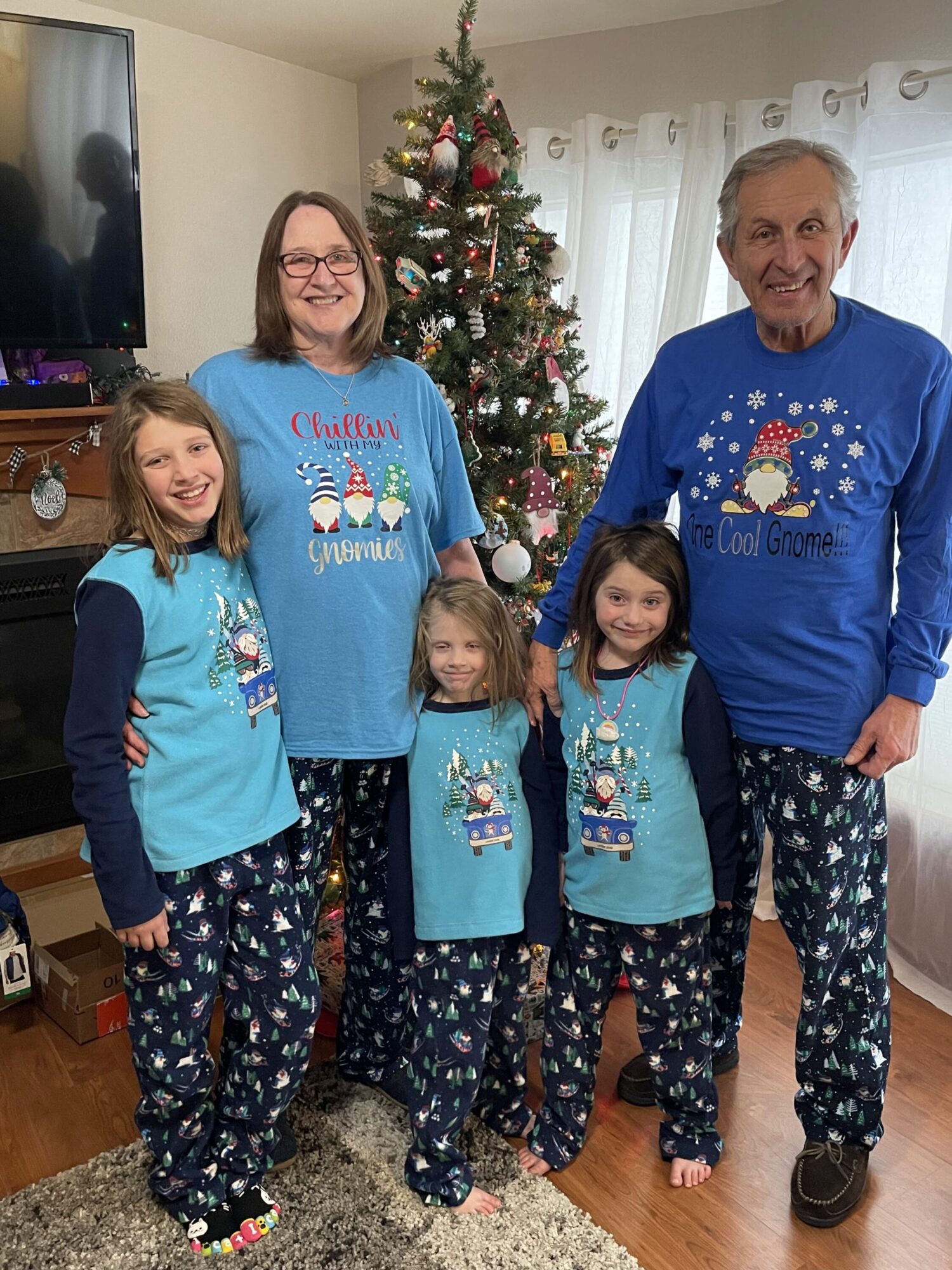

8 Comments. Leave new
I really appreciate the term ‘preservation breeders’ that they use during the Westminster Dog Show broadcast. Without us we would lose the purposely bred dogs that possess the qualities specific to their breeds. We would have multi-breed mixed dogs.
That’s not to say the breeds are not evolving. Golden Retrievers (my crazy since I was 10 years old) were bred as a ‘Gentleman’s Hunting Dog’ in the frigid waters of Scotland, but they have evolved into therapy/companion dogs, scentworker/diabetes/cancer detectors, avalanche/cadaver/Search & Rescue dogs, and all round gentle family dogs.
We are thrilled that Kokopelli ‘gets us’. We feel blessed to have you in our area as we hear from fellow breeders around the country about how sparse good reproductive care really is.
Breeders like CaliGold are the reason we love doing what we do.
As usual, your words of wisdom are a Godsend! And I am not even a “real” breeder; I don’t have a kennel of show dogs. I used to show rabbits (yes, that’s a thing!) and briefly showed boxers; now I have one female American cocker (from a big show-line), and do not show.
I love grooming her, and her boyfriend. THAT guy is a terror (he deserves his name, Chewy) – he could not figure out how to breed her (!). SO I will probably be seeing you again.
We look forward to seeing you! We love a cute Cocker!
So appreciate your blog post and for wonderful vets like you!
I am a crazy Standard Schnauzer Breeder for 16-1/2 years, but I am also crazy about a Repro Vet named Dr. Bruce Christensen, one of the best in his field in the world!!
Over the past 17 years my family has gone all in with breeding, grooming and showing Bichons Frises. Given that I met Dr. Christensen as a Professor at UC Davis Theriogenology Dept, I have had a very informative and easy relationship as a “crazy, passionate Breeder!” And now I understand why a little better. From UC Davis to Franklin Ranch to Auburn Blvd and now to Fulton Avenue, Rosemont Bichons have been a Kokopelli Vet Services groupie. Just recently, with a most highly managed prenatal period, through TCI with 14 year-old frozen semen from our foundation sire, Kokopelli’s Team helped us produce a beautiful litter of six- 3 boys, 3 girls. From our first breeding pair (Finley x Dominick) to nearing our last (Dany x Dominick) we have had a wonderful breeding program with many GCH, CH and International CH along with our pet puppies who bring joy and happiness to so many people. Thank you for publishing many of my Bichon photographs over the years. There has been many wonderful memories along the way. With gratitude, Laura
I’m sitting on my family room floor reading your blog at 4:30am with Mama Hallie while she nurses two 30 day old early risers who need a “snack” before their morning puppy mush. As I absorb your wisdom, I’m reflecting on why the heck I decided to breed her – twice. When I purchased her from an AKC breeder, I stated my intentions to have her genetic tested and medically evaluated for possible breeding, and was given approval from the breeder. It wasn’t until I actually decided to move forward with her AKC registration that I found out I was not granted “full” registration access. Luckily, I was guided by an experienced breeder who informed me about CKC. I at least know the litters I produced have their lineage documented. AKC is a goal, but healthy pups and maintaining the health of Mama are my priority.
I am frequently asked two question, “why do I breed my dog when there are dogs at the shelter to adopt?”, and “are you keeping all of your puppies?”. First, I love Corgis! Yes, everything about them. I want others to share my joy with genetically and medically healthy pups that will be loyal companions for their entire life cycle. There are too many stories of owners who have dogs with medical issues because they didn’t know what questions to ask beforehand. I am go grateful my original vet referred me to KRS, and have appreciate your shared knowledge and guidance. Second, as much as I would love to have 100 Corgis running around all barking at the same time, I think I’ll leave my “crazy dog lady” dreams in my head. Placing pups in responsible, loving homes is the correct path.
My daughter was recently asked “I want to give your Mom a gift. What does your Mom really like?” Her response- coffee, Disneyland and Corgis, but not necessarily in that order.